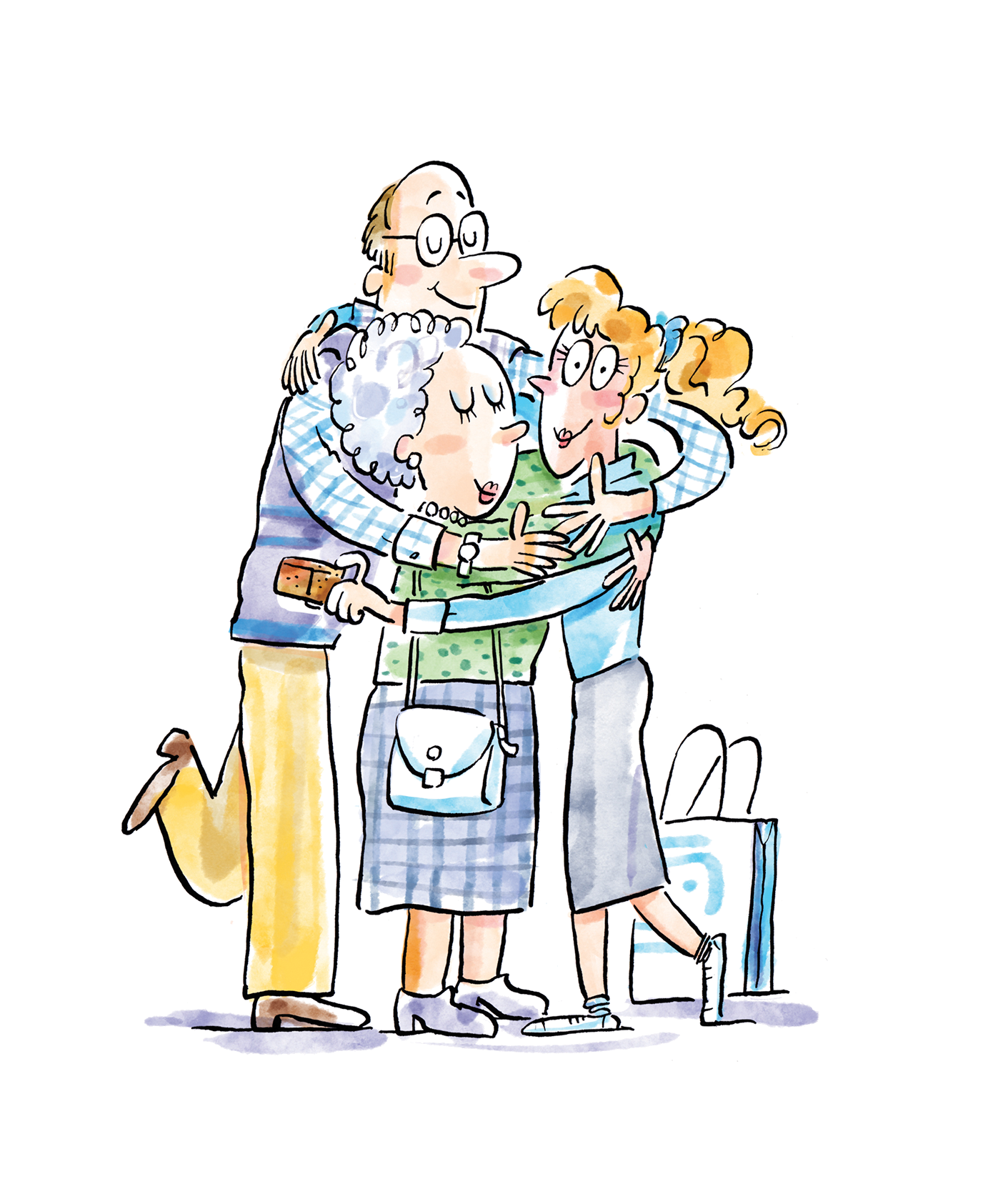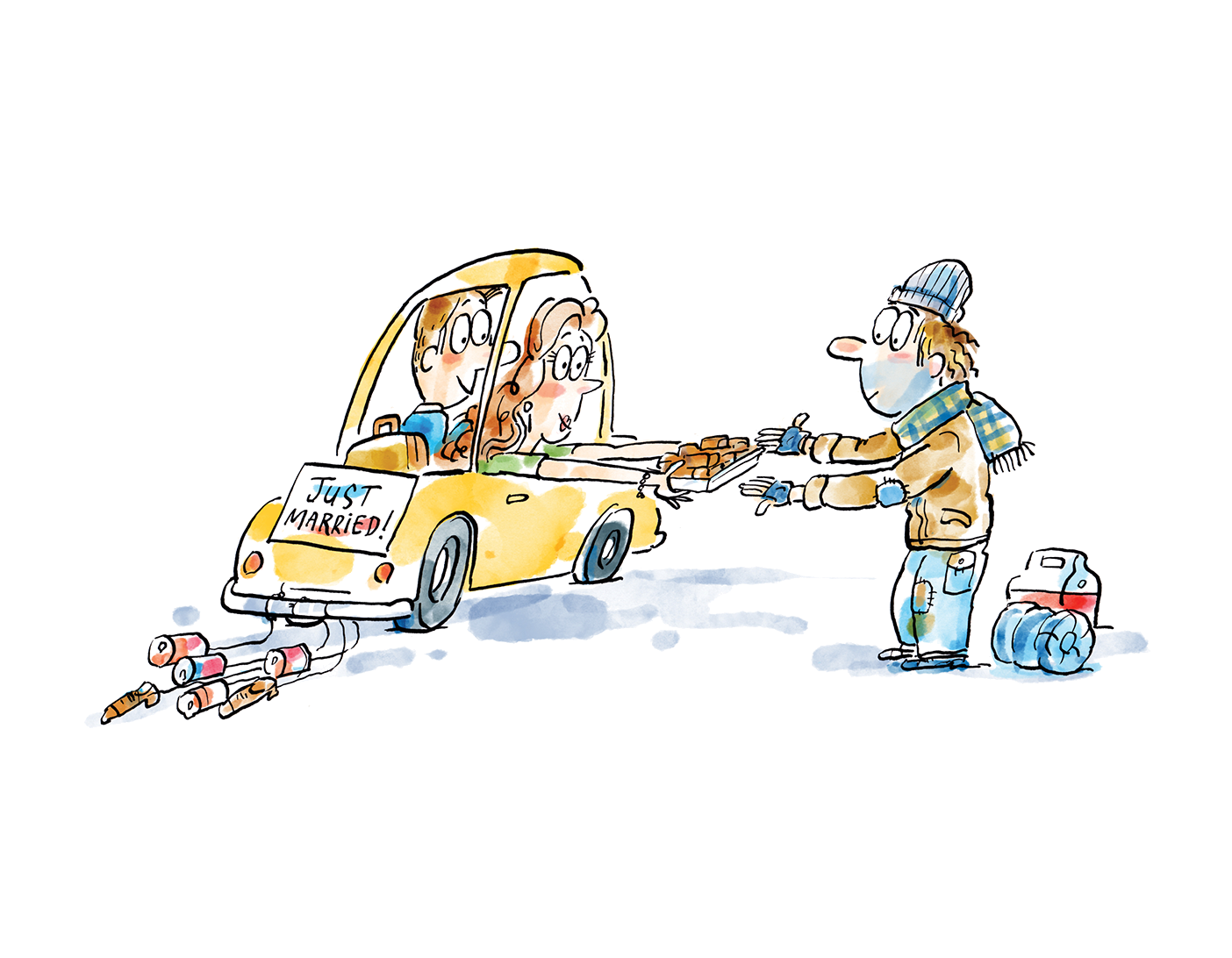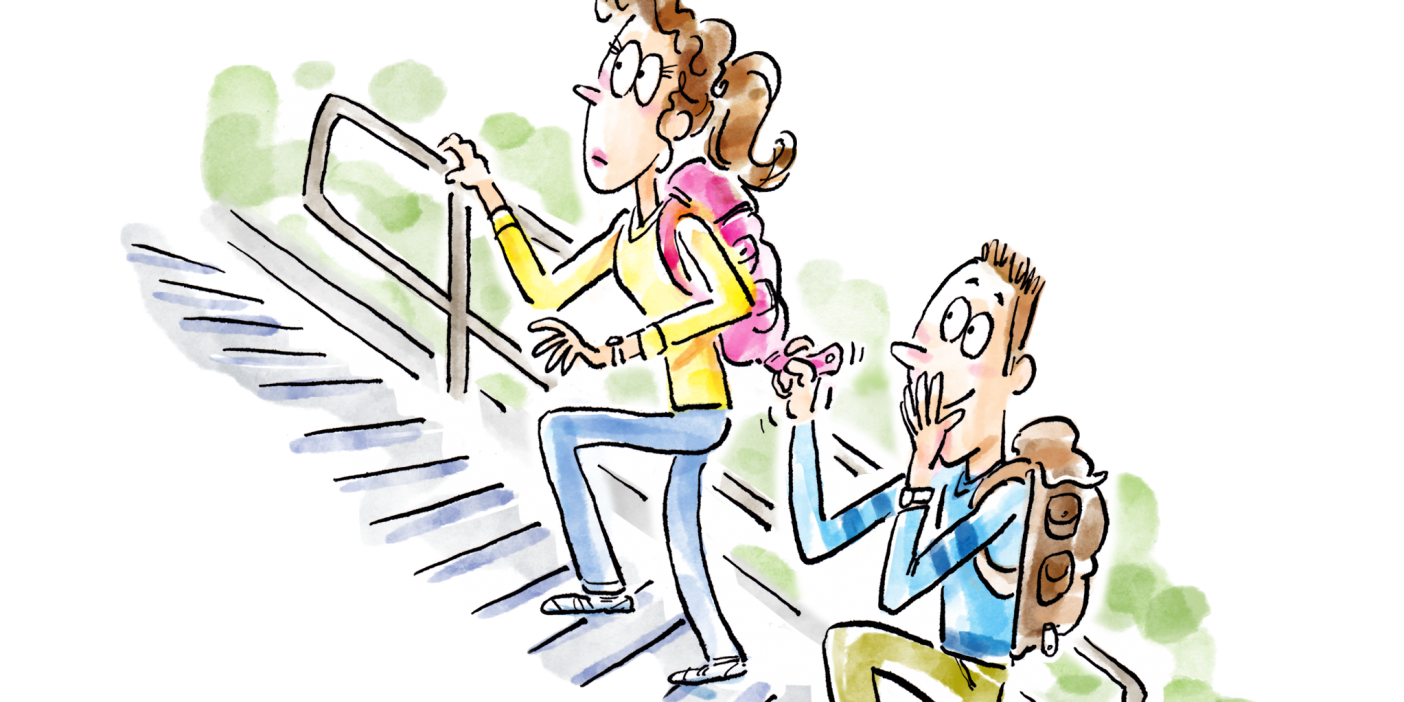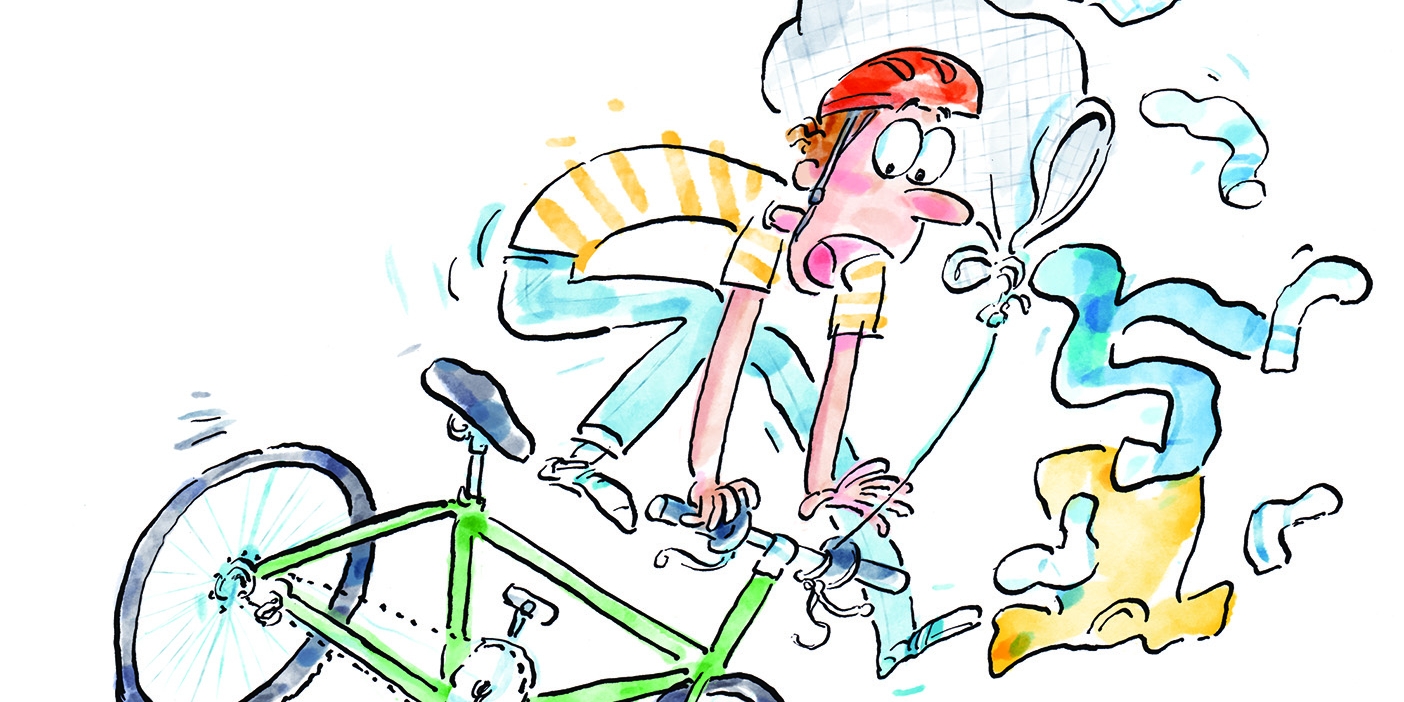With books, fudge, and BYU gear, the BYU Store has drawn crowds for generations.

Old, Unfamiliar Friends
By Candace Kunch Elder (BA ’81), Glendora, CA
Before leaving the MTC for our missions, my companion and I spent some of our final preparation day at the BYU Bookstore. While eating a piece of fudge and shopping, I was stopped by an older couple who, referring to my name tag, asked if I was related to Joseph and Diana Kunch of California. When I replied that I was their daughter, they both broke down in tears and hugged me, unable to speak.
When the couple finally regained their composure, they explained that my parents had been their neighbors in California for a time. Although this couple had tried to be good missionaries, my parents had never been interested in their gospel message. And so the couple was overcome with emotion to find that the baby girl they had held and bounced on their knees had accepted the gospel of Jesus Christ in high school and was now preparing to serve a mission.
That was April 1978, and we have stayed in contact ever since, thanks to a chance meeting in the BYU Bookstore.
A Nosey Bookstore Friend
By Melissa Burton (BS ’14), Provo
I always wanted to be a BYU student, just like my parents and grandparents before me. When I got my acceptance letter, my grandmother Rosemary Bean Burton (B ’53) was particularly pleased. With a twinkle in her eye, she told me she had a gift for me as the oldest grandchild to get accepted to BYU.
I don’t know what I expected, but it certainly wasn’t the unusual doll she handed me. It had thick black yarn for hair, huge eyes, a blue felt body with a white block-letter BYU on the front, and a remarkably long nose extending halfway down its chest.
“Thank you?” I said.
She then told me of working at the BYU Bookstore during the 1950s, when it was housed in army barracks left over from World War II. Near the end of her time as an employee, Grandma purchased this “funny little gentleman” from the Bookstore as a memento.
Since coming to BYU I’ve built a lot of my own memories around the BYU Store: the taste of jalapeño bagels, the smell of new books, and the friends I’ve made. My favorite memory, though, is of my grandma sharing the doll with the long nose and black hair—a symbol of my family’s treasured connection to BYU and the BYU Store.
From the Crossroads of Campus
By Bethany Watterson Merchant (BA ’10), Lehi, UT
For several years I worked in the BYU Bookstore customer accounts department. One day someone approached the counter to make a payment. The man’s voice was strangely familiar. When I looked up I recognized him as none other than Lloyd D. Newell (BA ’80, MA ’85, PhD ’99), the announcer for general conference and longtime host of Music and the Spoken Word. Feeling like I had met a Church celebrity, I had the nerve to ask if he would perform his general-conference line. To my surprise and delight, in that quiet corner of the Bookstore in the middle of a weekday, he said for no one but me, “This is the 176th Annual General Conference of The Church of Jesus Christ of Latter-day Saints.”
The Family Fudge
By Ellen Magleby Fudge (BA ’10), Minneapolis, MN
I met the love of my life a year before graduating from BYU. As we got closer and closer to the “marriage stage,” I made my list of pros and cons so I could pragmatically decide if I should marry him or not. The pros outweighed the cons 100—1, but that one con was still troubling to me. It was his last name: Fudge. It took some mental exertion, but I got over it, and soon we were engaged.
As we planned our reception, we wanted to have a little gift for those who came. Having met at BYU and with the last name of Fudge—you guessed it—we gave away BYU Bookstore fudge. My dad ordered more than 20 lbs. and essentially bought the counter out for a week!
Following the reception, my parents left us with about 5 lbs. of fudge in the back seat of the getaway car. Trouble was, we were leaving for our honeymoon and didn’t think the chocolate would last in the car for two weeks at the airport. On our way we saw a homeless man asking for change. As we rolled down the window and handed him several pounds of the treat, he gave us a quizzical yet excited look and said he felt like he had won the lottery.

Everybody, it turns out, loved the reception gift. And each time we go back to Provo, we always relive the happiest day of our lives by purchasing a bite of Bookstore fudge.
Candy Counter Encounters
By Christine Layton Graham (BA ’76, MA ’80), Salt Lake City
Working at the candy counter was fun, despite the mint green kettle cloth jumpers and matching babushka headscarves we were required to make and wear. It was a great place to meet and observe people, from self-righteous students who lectured us on the evils of chocolate and sugar to Education Week attendees who loaded up on both.
One day two guys I was dating showed up at the same time on opposite sides of the counter. I talked to one guy then helped a customer. Then I talked with the other guy, helped a customer, and turned to find the first guy waiting to finish our conversation. Turning to help another customer, I found the second guy still at the counter as well. I kept up both conversations—moving from guy to customer to guy—for at least half an hour, until they both left for class, still oblivious of each other.
Linguists on Call
By Wendy Stephens Brock (BS ’97), Fort Worth, TX
I worked at the BYU Bookstore candy counter for two years as a BYU student. Because of its central location in the middle of the Bookstore, the candy counter was the de facto “information booth” for many people. During the summer months non-student visitors and tourists from all over the world would come through the Bookstore, and some would ask questions in a language unknown to any of us. When this happened, we’d determine what language they were speaking and then I would make a storewide announcement: “Would anyone who speaks Cebuano (or Taiwanese or Khmer or Lao) please come to the candy counter?” A minute later a student—usually a returned missionary from a foreign assignment—would appear, proclaiming, “I speak Cebuano.” Inevitably, as the visitors began talking to the volunteer translator, another student would appear to offer linguistic help—and then another and another. The visitors were always amazed; I always felt proud of my fellow students who spoke such diverse languages fluently enough to help our visitors.












